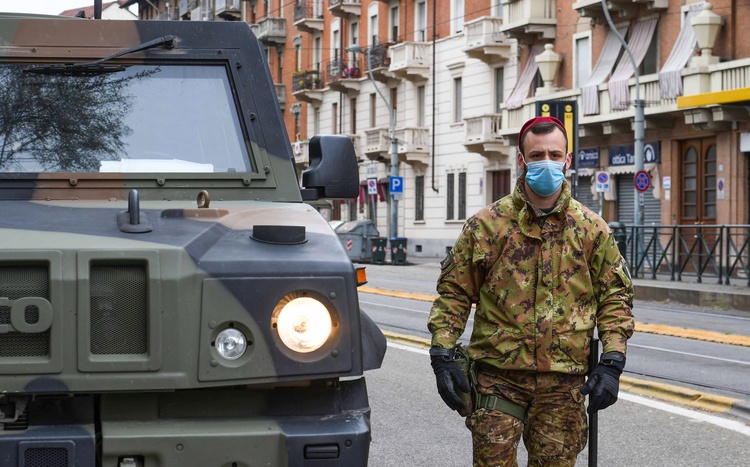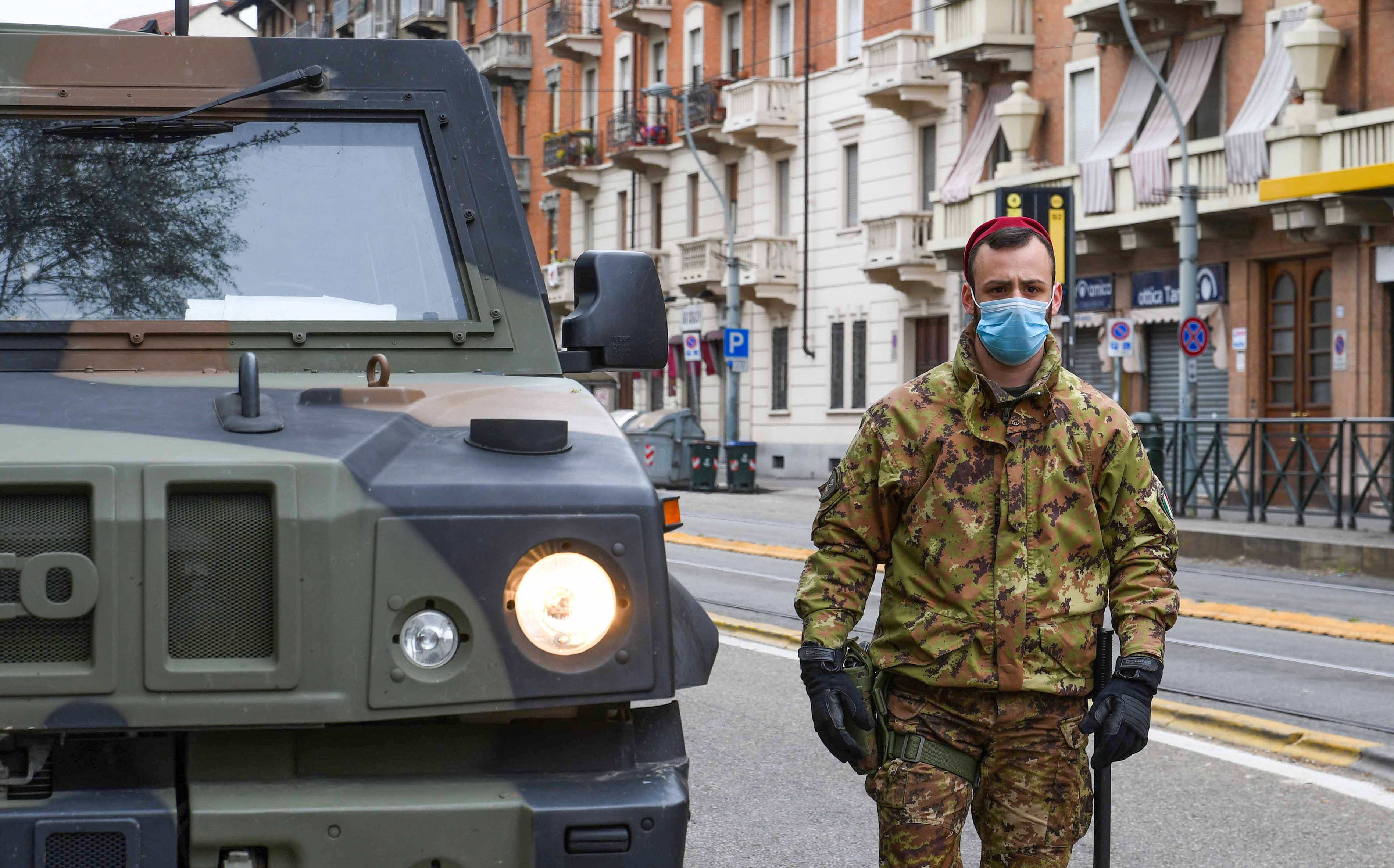The unprecedented nationwide lockdown was initially set to be in place until April 3, but the government has suggested it will likely be extended as Italy has become the global epicentre of the pandemic.
While the movements of Italy’s population of 60 million have been restricted since March 10, with travel only allowed for “urgent, verifiable work situations and emergencies or health reasons”, the government on Sunday cracked down on travel between towns.
It was initially possible to travel between neighbouring towns to buy supplies or return home, but this is now forbidden.
A new decree forbids Italians “from moving by public or private means of transport outside the municipality in which they are currently located”.
There is an exception for those who can prove they must travel “for work needs of absolute urgency or for health reasons”.
In addition, the government on Sunday ordered all “non-essential” factories to end production, releasing a list of the businesses that will be allowed to continue operating.
Any services not on the list have until Wednesday to wrap up outstanding orders and close their doors until at least April 3.
However, “non-essential” businesses can continue to operate if all their staff work entirely from home.
The government has designated around 80 sectors “essential”, notably: food, pharmaceuticals, transport, accommodation and media.
In worst-hit region of Lombardy, authorities have taken extra steps in a bid to curb the spread of the virus.
Lombardy has been fighting coronavirus longer and than any other part of Italy, accounting for around 50 per cent of the country’s cases since the outbreak began.
It was the first region to put multiple towns under quarantine, measures that were extended over the entire region before eventually being rolled out nationwide.
Effective from March 22 until at least April 15, Lombardy’s new rules include:
No more outdoor sports
You can no longer go for a walk, run, bike ride or any other form of exercise in public, even by yourself.
Fines of up to €5000
Anyone caught breaking the ban on “public gatherings” – defined as more than two people together in public – risks a fine of up to €5000, nearly 25 times the €206 fine applicable in the rest of Italy.
Short dog walks only
Anyone taking their pet out must carry an official form and is forbidden from straying more than 200 metres from their home.
No visits to your second home
Residents are expressly forbidden from staying anywhere other than their main residence, including any other properties they may own.
Hotels to close
All tourist accommodation, including hotels, Airbnbs and agriturismo farm stays, must close and guests will have to leave by the end of Tuesday.
However, those in the following circumstances will be allowed to stay:
- Visitors forced to extend their stay because of unavoidable difficulties that prevent them travelling home
- People who work in an essential industry and are away from home because of their job
- People who are caring for somebody who is ill
- People who are registered as residents of the accommodation or who are on duty there
University dormitories, homeless shelters and accommodation managed by religious orders are not subject to the restrictions.
One person per family at the shops
Only one person per household at a time will be allowed to enter shops, unless you can prove that you need assistance from a second member of your family.
Vending machines banned
Vending machines selling food and drink are no longer allowed to operate.
Construction work halted
All construction work is suspended unless it’s to build or maintain vital infrastructure, or to repair a structure that poses a risk to public safety.
Only essential businesses open
Like in the rest of Italy, only essential shops – supermarkets, pharmacies and newsagents – remain open.
But while the national government’s list of indispensable industries is fairly long, Lombardy has limited it further, notably ordering engineers, architects, notaries and other “professional offices” to shut.
Extra temperature checks
Lombardy’s ordinance recommends systematically checking the temperature of people working in key sectors, such as factory workers and supermarket cashiers, as well as their customers.
It also encourages police to take the temperature of anyone they stop in public.












